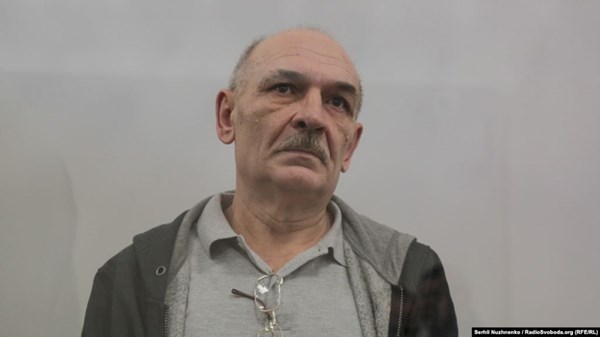MH17 suspect Vladimir Tsemakh complains to European Court of Human Rights about Ukraine and Netherlands
Vladimir Tsemakh, a suspect in the case surrounding the Malaysia Airlines flight that was shot down over eastern Ukraine in 2014, has submitted a complaint to the European Court of Human Rights (ECHR) against Ukraine and the Netherlands based on the actions of these countries’ law enforcement agencies.
“I have submitted a complaint to the ECHR in Tsemakh’s interests. I don’t have more information yet, we are awaiting further developments,” said his attorney, Anatoly Kucherena, as cited by the TASS news agency. Kucherena said that his client’s complaint draws attention to the circumstances of his capture and his imprisonment in Kyiv, as well as the use of psychotropic substances on him in his cell. “These are all flagrant human rights violations,” said Kucherena, who has said previously that his client is willing to testify against Dutch and Ukrainian law enforcement.
The Security Service of Ukraine (SBU) declared Tsemakh a wanted person at the start of December. According to Ukraine’s Interior Ministry, he disappeared on September 23, 2019, and has been classified as a person hiding from the pre-trial investigation authorities.
On September 7, Tsemakh was handed over to Russia as part of a prisoner exchange. That same day, the Netherlands officially demanded that Russia extradite Tsemakh. Since then, his whereabouts have been unknown.
On October 9, Dutch Parliament unanimously supported a decision to investigate Ukraine’s involvement in the MH17 catastrophe, which took place over the Donbas in 2014. Ukraine’s parliament, the Verkhovna Rada, supported the decision, noting that the current government must remain open to cooperation with international investigative teams, as it has been “since the first minutes of this catastrophe”.
Vladimir Tsemakh is one of the Netherlands’ five chief suspects in the MH17 case. On June 29, Tsemakh was arrested for 60 days, but on September 5 he was released on his own recognizance. On September 7, he was handed over to Russia as part of a “35 for 35” prisoner exchange.
Australia, the Netherlands and a number of members of European Parliament urged Ukraine not to include Tsemakh in the exchange. Ukrainian President Volodymyr Zelensky said that the Dutch investigators did have an opportunity to question Tsemakh before he was handed over. After the exchange, the Netherlands Public Prosecution Service sent Russia an official request to hand over Tsemakh. Zelensky also missed an opportunity to meet with the Dutch Prime Minister at the UN.
